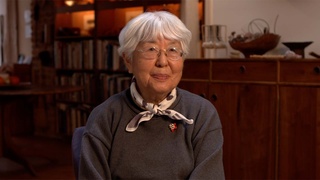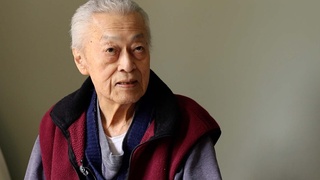Interviews
On telling his wife he had radiation sickness and his son’s cancer
When we decided to get married back in 1962, way before you were born, '62, I told my wife that I have a background, the radiation. I had radiation sickness, that basically I told her I may not live that long. But I fooled her, I'm still alive. But you know, then we discussed—is there any possibility of offspring having problems.
I talked about the three traumas I had, the A Bomb, coming back to Yokogawa. The third one was when we came back to [the] United States, that was a traumatic event. Well, fourth one happened after we got married. We had three children, two girls and one boy. The oldest one being the boy. Well at age of five, he got cancer and died. So, now, is that because of the radiation? Or something else? I always inquired of the doctor, I said, “Gee, what do you think?” He said, “No, there’s no correlation between that and the death of your son."
But, I have two wonderful daughters. One, well they’re both I think close to 50 or one’s over 50. I have four grandchildren, two of each sex. And they seem to be pretty healthy. So maybe the death of my son was a fluke and something that would have happened had I not been in the A-Bomb.
Date: September 3, 2019
Location: California, US
Interviewer: Masako Miki
Contributed by: Watase Media Arts Center, Japanese American National Museum







